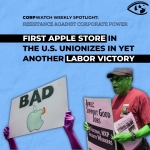US: Spitzer sues major radio chain in 'payola' suit
Gifts, trips and cash were used to pave the way for air time for certain songs and artists at radio stations owned by one of the nation's largest chains, according to lawsuit filed by state Attorney General Eliot Spitzer.
The accusation was denied by the company, Entercom Communications (ETM) of Bala Cynwyd, Pa., which owns and operates more than 105 radio stations.
"We have moved from the label side, those who put out the records and are forced to pay for air time, and switched to the radio conglomerates ... that are extracting money," Spitzer said Wednesday.
He said payola violates radio stations' federal licenses and New York state civil law. He said the Federal Communications Commission, which he said has been "asleep at the switch" on payola, should consider revoking the licenses.
Entercom spokesman Adam Miller said the company plays by the rules.
"We have firm policies prohibiting payola and requiring compliance with the federal sponsor identification rules and we enforce them," he said. "We have cooperated fully with the attorney general's office in this investigation. Now that the attorney general has filed this civil action we are confident that the issues will be fully and fairly resolved by the court."
In February, Spitzer subpoenaed nine of the nation's largest radio conglomerates in his payola investigation of major artists and songs that he claims got air time because of payoffs by recording companies. Two major recording companies agreed last year to settle their parts of the investigation. Warner Music Group said it would pay $5 million, and Sony BMG Music Entertainment agreed to pay $10 million.
Spitzer said Entercom e-mails he obtained include one from an unidentified executive that stated: "These are not optional. They come from corporate and generate millions of dollars for Entercom."
The lawsuit says it has evidence in documents and e-mails that executives discussed strategies for supplementing radio station budgets with payola cash from record companies and the independent promoters that act as middle men in the industry.
Spitzer said he is filing the civil action in state Supreme Court in Manhattan because New York's civil laws address the alleged behavior. He said a criminal case would difficult if not impossible to make.
He also criticized the FCC for not acting on payola during the year in which his investigation was first made public.
"The FCC must come to life on this issue," Spitzer said. "Maybe their ears are clogged, I don't know."
- 180 Media & Entertainment
- 185 Corruption


